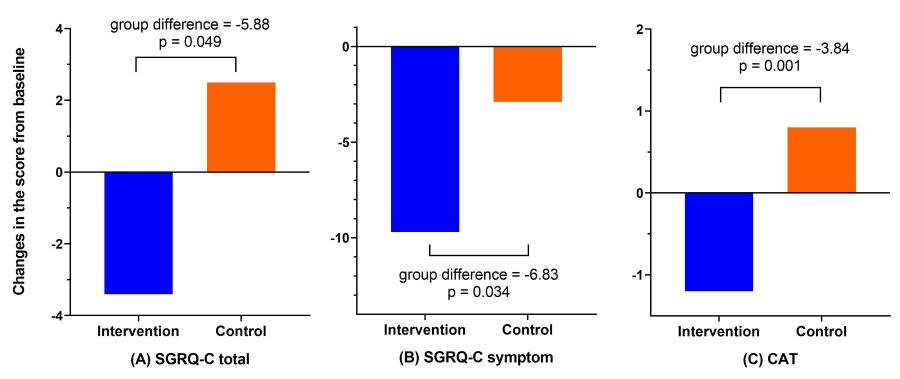Abstract
Introduction Particulate matter 2.5 (PM2.5) adversely affects COPD outcomes. Efficacy of individual-level interventions to reduce PM2.5 exposure is not well known.
Aims and objectives We investigated if lifestyle interventions to reduce PM2.5 exposure improve clinical outcomes in patients with COPD.
Methods COPD patients aged 40-80 years with FEV1 %predicted <80% were included in this multicenter randomized controlled trial. Study participants were 1:1 randomized to either the intervention or control group and followed for 9 months. The intervention comprised 5 activities: air quality forecast check; indoor air cleaner use; regular home ventilation by opening windows; adherence to inhaler therapy; and avoidance of going out on heavy pollution days. The outcomes were changes in St. George?s Respiratory Questionnaire for COPD patients (SGRQ-C) and COPD assessment test (CAT) scores.
Results A total of 120 patients were randomized, and 102 patients (85.0%) completed the study (51 in each group). The mean age was 67.8 years and 93.1% were men. At the end of the study, the intervention group showed greater reduction from the baseline in the scores of total SGRQ-C (-3.4 vs. 2.5; p=0.049), symptom domain of the SGRQ-C (-9.7 vs. -2.9; p=0.034), and CAT (-1.2 vs. 2.7; p = 0.001) than the control group (Figure 1).
Conclusions Lifestyle interventions to avoid PM2.5 significantly improved the quality of life and symptoms in patients with COPD.
